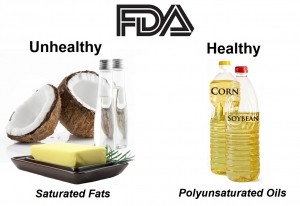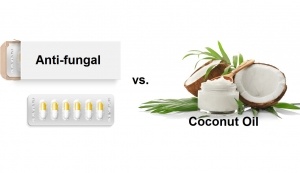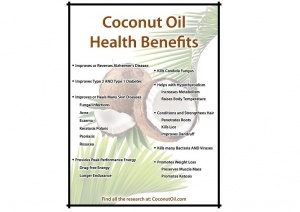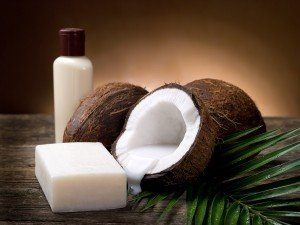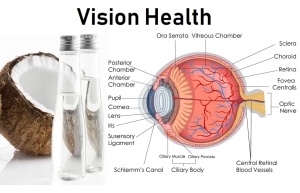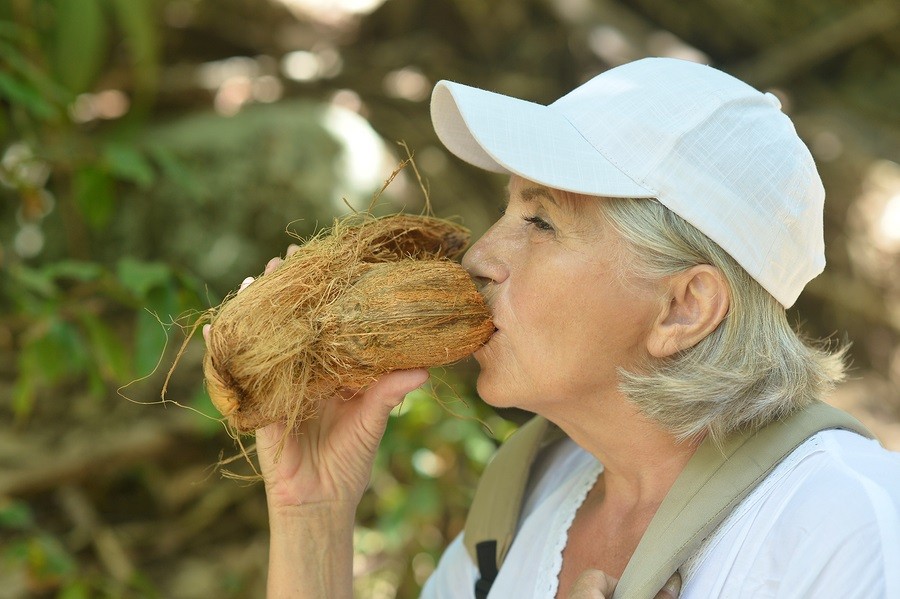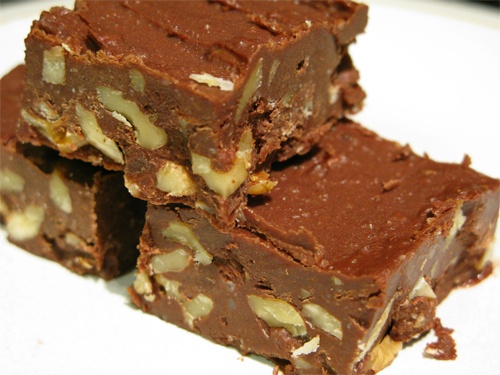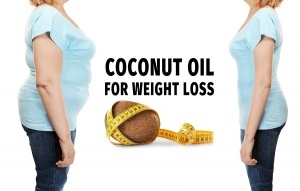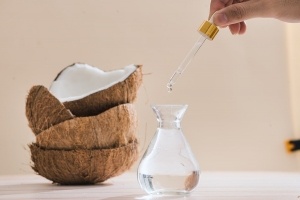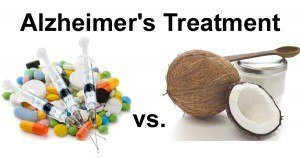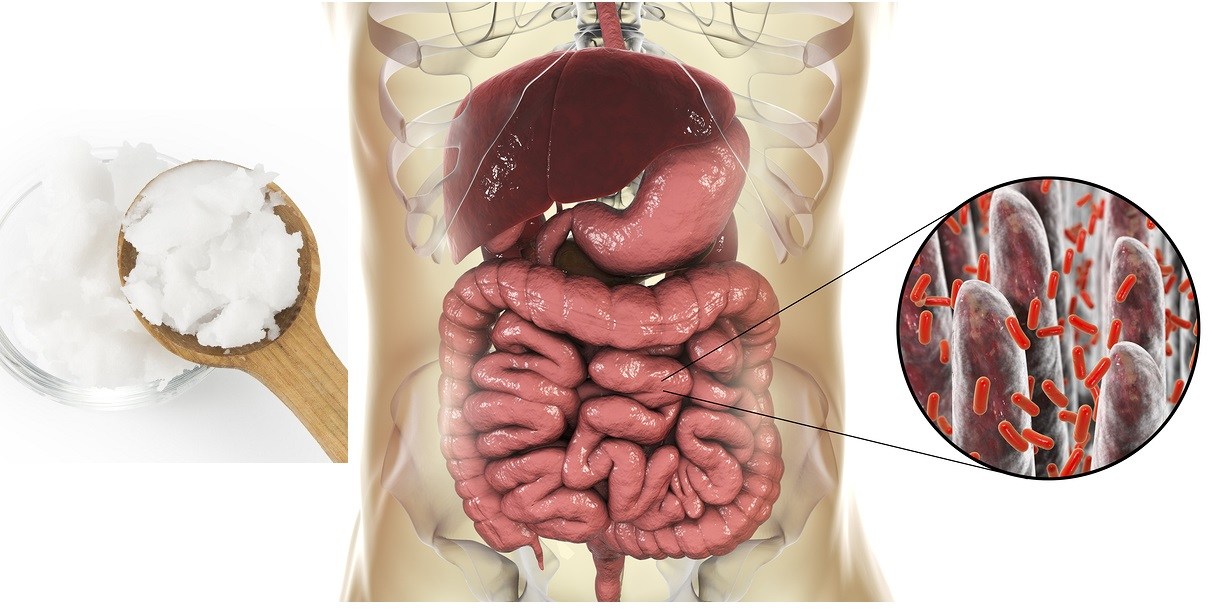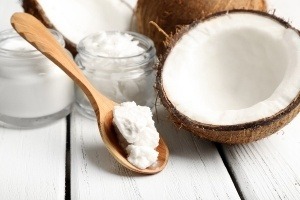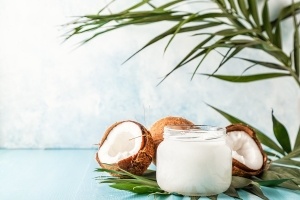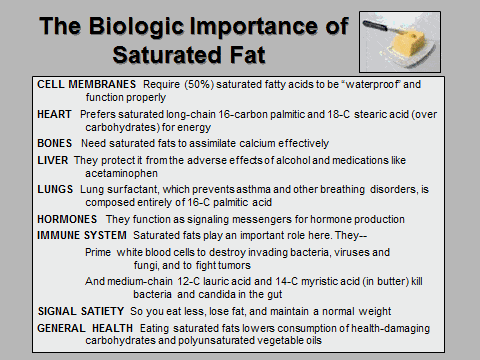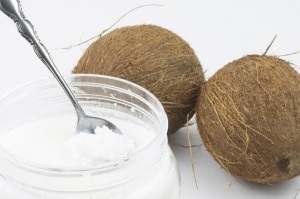Much maligned for years as a saturated fat, we’ll bring you truth regarding the incredible health properties of coconut oil.
Study: Coconut Oil a Healthy Saturated Fat – But the FDA Prohibits the use of “Healthy” in Describing Coconut Oil
Recently we covered a study published in the journal Clinical Nutrition which compared peanut oil consumption with coconut oil consumption among healthy men in India, where those who consumed coconut oil had better health outcomes in terms of heart disease and diabetes. (See: Coconut oil consumption improves fat-free mass, plasma HDL-cholesterol and insulin sensitivity in healthy men with normal BMI compared to peanut oil.) A researcher at The University of Edinburgh Medical School wrote a Letter to the Editor of Clinical Nutrition commenting on this study, criticizing current government nutritional guidelines regarding saturated dietary fat restrictions. "The cross-over study by Korrapati et al. detailed the potential cardioprotective effect of coconut oil, and I would like to thank the authors for their insight. Whilst the sample size was small, it was well-designed to investigate its primary end-points. This study is particularly topical as, despite removal of the maximum dietary fat intake restriction from guidelines, a major resistance against saturated fats remains." Setting aside the issue of whether or not saturated fats should be restricted at all, given the abundance of contrary evidence in the medical literature, the Edinburgh Medical School researcher reported that such guidelines do not distinguish between different types of saturated fats. Saturated fats can be found in animal products, such as butter, as well as plant sources, such as coconuts and date palms. "The rise in high density lipoprotein cholesterol (HDL-c) with coconut oil consumption is certainly a compelling finding. Results from a recent and larger-scale randomised trial by Khaw et al. corroborate this... Evidence suggests that the saturated versus unsaturated distinction of fats is likely an oversimplification. Korrapati et al. should, therefore, be commended on their focus on the biological properties of coconut oil, particularly the medium chain triglyceride (MCT) dominated fatty acid profile, which may confer atheroprotective effects."
As Pharma Anti-fungal Drugs Fail, Is Coconut Oil Best Defense for New Deadly “Mystery Infection?”
Headlines in the corporate-sponsored "mainstream" media recently warned the public about a new "mysterious infection" that is drug-resistant. As a recent NY Times Health Section article reported, there is allegedly a hospital cover-up of an emerging candida fungus, Candida or C. auris. It is the latest antimicrobial drug-resistant "super-bug" to emerge in hospitals and nursing homes. This time it's not about bacteria, it's a virulent form of candida. And while the corporate media, sponsored in a large degree by Big Pharma, will almost never report on natural solutions, there is hope for fighting fungal infections like Candida where drugs have failed. One of the most beneficial natural products that fights and kills strains of Candida, according to peer-reviewed research over the past several years, is coconut oil.
Research in 2019 Continues to Show Healing Benefits of Coconut Oil
Research outside of the United States continues to show what the world is investigating and learning about coconut oil, while such information is censored in the U.S. corporate "mainstream" media since coconut oil presents a threat to Big Food and Big Pharma's financial interests. Recent studies confirm that coconut oil protects the heart, and also potentially protects other vital organs including the liver and kidneys of those suffering from diabetes. This research contradicts the propaganda against coconut oil by American organizations such as the American Heart Association which still promote the now failed theory of heart disease that blames saturated fats and cholesterol as causative factors in heart disease.
Study: Dietary Coconut Oil Leads to Healthy Skin – Reduces Skin Infection and Inflammation
A new study out of Japan and published in the European Journal of Allergy and Clinical Immunology shows how switching the dietary oil of chow fed to mice from soybean oil to coconut oil reduced skin inflammation. The skin healing properties of coconut oil, especially virgin coconut oil, applied topically to the skin have been known for a long time. Even though coconut oil is sold as a dietary oil, people applying it topically are seeing tremendous results for their skin conditions such as acne, eczema, keratosis polaris, psoriasis, rosacea, and fungal infections. We have suspected for years that the reason people in tropical climates who eat their traditional diets which are high in the saturated fats of coconut oil had such beautiful skin, even though they are exposed to the sun to a greater degree than westerners, is because of the high amounts of coconut oil in their diet, which does not oxidize and cause free radical damage as polyunsaturated fats do. Skin cancer, for example, is almost unheard of in tropical climates like the Philippines, but common in western nations, even in colder climates with far less exposure to the sun. Researchers in Japan apparently wanted to test this theory of dietary coconut oil reducing allergic skin inflammation in the laboratory: "Coconut oil is used as a dietary oil worldwide, and its healthy effects are recognized by the fact that coconut oil is easy to digest, helps in weight management, increases healthy cholesterol and provides instant energy. Although topical application of coconut oil is known to reduce skin infection and inflammation, whether dietary coconut oil has any role in decreasing skin inflammation is unknown. In this study, we showed the impact of dietary coconut oil in allergic skin inflammation by using a mouse model of contact hypersensitivity (CHS)."
Study: Virgin Coconut Oil has Anti-inflammatory and Skin Protective Properties
Many who have used coconut oil for their skin and hair rave about its positive effects. Many testimonials to the powerful healing properties of virgin coconut oil for skin conditions have been published here at CoconutOil.com over the years. People have testified to virgin coconut oil healing fungal skin infections, acne, eczema, keratosis polaris, psoriasis, rosacea, and more. But exactly how virgin coconut oil is so beneficial for applying on one's skin has rarely, if ever, been thoroughly analyzed on a chemical and cellular level. That’s no longer the case, as a new study has recently determined what goes on biochemically within the skin’s cellular and genetic composition when using virgin coconut oil on one’s skin. This report, In vitro anti-inflammatory and skin protective properties of Virgin coconut oil, was published by the Journal of Traditional and Complementary Medicine in January, 2019.
Study: Coconut Oil Prevents Macular Degeneration – Healthy for the Eyes
A recent study published late 2018 confirms an earlier Health Impact News article that macular degeneration, a disease mainstream medicine considers irreversible, can be prevented, attenuated, and even reversed naturally. The natural ingredient this study tested was coconut oil. This study was conducted by Nigeria’s University of Ilorin’s Department of Physiology. The final report, titled "Coconut oil protects against light-induced retina degeneration in male Wistar rats" was published by the journal Pathophysiology.
Study: Coconut Oil Better for Preventing Heart Disease and Diabetes in Asian Diets
In parts of Asia, both peanut oil and coconut oil are often used for cooking. A recent study in India compared cooking with peanut oil to cooking with coconut oil to determine the relative health benefits for weight management, heart disease, and diabetes. The researchers used nine healthy male volunteers with normal body mass index or BMI levels to undergo eight weeks of consuming a normally balanced diet cooked with coconut oil, followed by a six-week "washout" period, then another eight weeks of the same diet cooked with peanut oil. The study report is called Coconut oil consumption improves fat-free mass, plasma HDL-cholesterol and insulin sensitivity in healthy men with normal BMI compared to peanut oil. The researchers concluded: "… compared to peanut oil, the consumption of coconut oil in a balanced diet resulted in increased fat-free mass, plasma HDL-C, elicited favourable changes on insulin sensitivity and CVD risk-associated parameters in healthy men with normal BMI."
Research Shows High-Fat Low-Carb Diet with Coconut Oil Can Prevent or Cure Alzheimer’s
A very recent review on nutritional approaches toward preventing and reversing Alzheimer’s disease (AD) was conducted in Christchurch, New Zealand’s Canterbury University. The results were submitted to the journal Nutrition. It’s title: "The ketogenic diet as a potential treatment and prevention strategy for Alzheimer's disease." After analyzing 33 studies researching AD and other neurological disorders handled with a ketogenic diet and supplementing coconut oil, the University of Canterbury review analysis concluded: "In this review, we hypothesize that the ketogenic diet could be an effective treatment and prevention for Alzheimer's disease, but both ketone production and carbohydrate restriction may be needed to achieve this."
Study: Medium Chain Fatty Acids in Coconut Oil Provide Sustained Energy for Athletes
Most of us are not used to considering dietary fat as a high source of energy for all-out exercise, athletic activity, and physical labor. Energy from fat has usually been associated with stored fat within the body as a reserve for when carbohydrate energy runs out. Now a 2018 Russian study using cross-country skiers as human subjects determined medium chain fatty acids (MCFA), normally contained in only a few saturated fats, supplied immediate energy during high demand athletic endeavors. These fatty acids don’t get stored as fat, but provide sustained energy. This truth can benefit all of us, not just athletes.
Study: Neuroprotective Effect of Virgin Coconut Oil Helps Relieve ALS (Lou Gehrig Disease)
ALS (amyotrophic lateral sclerosis) is a neurodegenerative disease that causes disability and can lead to death. It is considered progressive and incurable. It is often referred to as Lou Gehrig disease, named after the Yankee baseball star of decades ago whose career was cut short by ALS. ALS begins with minor muscular control issues then progresses until one is completely disabled, even unable to consume food or breathe. It can be a slow, miserable death for many who are stricken. ALS diagnoses have been increasing, and the pharmaceutical industry has no cures. A recent animal study looked into the potential of coconut oil for preventing or reducing ALS symptoms. The results of the study were positive, and revealed that the coconut oil supplementation together with the regular diet delayed disease symptoms, enhanced motor performance, and prolonged survival in mouse models. The baby-boomer era generations are aging in large numbers, and those aging are most prone to neurodegenerative diseases such as ALS and Alzheimer’s disease. Virgin coconut oil is safe and carries even more nutritional benefits in addition to neurological protections.
Study: Virgin Coconut Oil Better than Drugs in Treating Diabetes and Obesity
Researchers in Brazil recently completed an animal study to determine if virgin coconut oil (VCO) could replace pharmaceutical drugs for reducing obesity and its attendant co-morbid inflammatory and diabetic conditions. The researchers refuted the misguided conventional thinking of saturated fats causing obesity. They wanted to investigate the saturated fat coconut oil as a functional food to replace pharmaceutical drugs currently used for obesity that cause adverse side effects. The Brazilian researchers also expressed concern with the abundant schemes and dietary efforts at reducing calories that are impractical and difficult to maintain, not to mention often unhealthy. Using refined carbohydrates and processed vegetable oils to avoid saturated fat is the lifestyle of the unhealthy, as the standard American diet (SAD) has proven. The researchers used refined carbohydrates to create adiposity in their experimental mice. Refined carbohydrates such as sugar, high fructose corn syrup, and flours used in processed foods are pervasive in our culture and have been recognized by many scientists open to the truth as the real culprits behind obesity, diabetes, and heart disease.
Use of Coconut Oil as Enema Saves Woman’s Colon from being Surgically Removed due to Colitis After Drugs Failed
A new case study out of Germany just published in The American Journal of Gastroenterology documents the remarkable recovery of a woman who was recommended to have part of her colon removed, including her anus, due to a severe case of Crohn's disease and complicated by diversion colitis. She refused to have a proctectomy (to surgically remove a portion of her colon along with her anus) as recommended by her doctors, and requested a natural approach instead. Therefore, her doctors started daily local administration of three and half ounces of prewarmed coconut oil as a rectal enema. The patient saw immediate results within one week, and after 12 weeks, she was free of pain and returned to work.
As Alzheimer’s Drugs Continue to Fail, Researchers Search for Reasons Why Coconut Oil Cures Alzheimer’s
A group of New York City’s Mt. Sinai Medical School researchers set out to analyze why and how coconut oil affects Alzheimer’s Disease (AD) patients favorably. They acknowledged some efficacy from coconut oil, and they wanted to know more. Since most drug trials to develop an Alzheimer's drug have failed miserably, the motivation to study coconut oil in order to understand how it positively affects AD was probably motivated by a desire to patent a new drug that could work similar to coconut oil, a natural food that cannot be patented. Their research was based on earlier animal studies of virgin coconut oil’s effect on mouse models of coconut oil as well as other in vitro (lab culture) studies. The researchers also acknowledged the existence of many anecdotal testimonies of AD (Alzheimer’s disease) patients. The Mt. Sinai report was published in the journal Science Direct, Brain Research with the title: Coconut oil decreases expression of amyloid precursor protein (APP) and secretion of amyloid peptides through inhibition of ADP-ribosylation factor 1 (ARF1).
Study: Virgin Coconut Oil Improves the Microbiome and Fights Diabetes
A new study published in the journal Plant Foods for Human Nutrition on August 31, 2018, with the title Beneficial Effect of Virgin Coconut Oil on Alloxan-Induced Diabetes and Microbiota Composition in Rats adds further proof that virgin coconut oil is a powerful remedy for diabetes. In this latest study, virgin coconut oil was shown to be beneficial to the microbiome by increasing probiotic bacteria, leading to better outcomes for those suffering with diabetes. This new research confirms what many have reported to us over the past 15 plus years, that virgin coconut oil is beneficial in overcoming both Type 1 and Type 2 diabetes. This new study offers a possible explanation as to how virgin coconut oil helps people with Type 1 diabetes without directly affecting insulin levels.
Medical Industry Attacks Coconut Oil Again – Harvard Medical Professor Calls it “Pure Poison”
The corporate-sponsored "mainstream" media, funded in large part by the pharmaceutical industry, is promoting a lecture given in German by a Harvard medical professor who claims that coconut oil is "pure poison." The lecture was given by Dr. Karin Michels, the director of the Institute for Prevention and Tumor Epidemiology at the University of Freiburg and a professor at the Harvard T.H. Chan School of Public Health. Now, before I expose the old same tired lies the medical system and its media proponents claim about coconut oil, and the reasons why they are doing so, just consider the logic of making such a statement as "coconut oil is pure poison." While coconut oil has only become popular in the U.S. again in recent years, it is a traditional food that has been consumed in tropical climates where coconuts grow for many thousands of years. Is it reasonable to think that all these billions of people have been poisoning themselves due to their consumption of coconut oil for the past several thousand years? If it were truly a poison leading to heart disease and bad health, wouldn't we be seeing an increase in many health problems among the millions of Americans who now use it as their primary dietary oil? Is there any evidence at all for any of Dr. Michels claims? No. The real reason coconut oil is being attacked in the corporate media by the medical system, is because it is a threat to their toxic drugs. Because outside of the U.S., the peer reviewed literature is publishing more and more studies showing just how healthy coconut oil really is, and how it is being used in nutritional protocols to help cure many diseases such as dementia and Alzheimer's disease.
High Fat Ketogenic Diet Successful in Treating Adult Epilepsy, Brain Tumors, and Alzheimers
A new review published in August 2018, in the Journal Brain Sciences looked at the effectiveness of the ketogenic diet to treat adult epilepsy, adult malignant glioma (brain tumors), and Alzheimer’s disease. It was written by Tanya J. W. McDonald and Mackenzie C. Cervenka from the Department of Neurology, Johns Hopkins University School of Medicine. The review is titled "The Expanding Role of Ketogenic Diets in Adult Neurological Disorders." The aim of the review is to describe the evidence, preclinical and clinical, supporting Ketogenic Diet use in the management of adult epilepsy, adult malignant gliomas (brain tumors), and Alzheimer’s disease. Several randomized controlled trials support the use of Ketogenic Diets for the treatment of drug-resistant epilepsy and there is emerging evidence that these diets are also effective in treating refractory status epilepticus, malignant glioma and Alzheimer’s disease in adults.
Spanish Study Sees Improvement in Alzheimer’s 21 Days After Starting Coconut Oil
There have been several studies from countries outside the U.S. that show the health virtues of coconut oil for Alzheimer's Disease. Meanwhile, pronouncements from the USA’s Alzheimer's Association and medical press releases, warning against using coconut oil, have persisted. These international studies conclusions fly in the face of our “expert” opinions that, as a saturated fat, coconut oil threatens heart health. This misinformation continues even as medical practitioners of all types are realizing that the lipid theory of heart disease as the leading contributor to poor heart health is simply not true. The most recent study was published on July 20th, by the Journal of Alzheimer's Disease. This human study was conducted by academic researchers in Valencia, Spain, and titled Improvement of Main Cognitive Functions in Patients with Alzheimer's Disease after Treatment with Coconut Oil Enriched Mediterranean Diet: A Pilot Study. This was a remarkable study, as there were measurable improvements among Alzheimer's patients in 21 days from adding coconut oil to a Mediterranean diet.
Study: Virgin Coconut Oil Reduces Effects of Aluminium Chloride-induced Alzheimer’s
Another study has been published here in 2018 looking at the positive effects of virgin coconut oil for Alzheimer's disease. This is the third peer-reviewed study we have covered so far in 2018 looking at the effects of coconut oil on Alzheimer's Disease (AD). This latest study is titled "Possible prophylactic anti-excitotoxic and anti-oxidant effects of virgin coconut oil on aluminium chloride-induced Alzheimer's in rat models." It was published July 13, 2018, in the "Journal of Integrative Neuroscience." The study was conducted by researchers from the Faculty of Medicine at King Abdulaziz University in Saudi Arabia. This year's previous studies on AD and coconut oil were also conducted outside of the U.S. (Japan and Iran.) This study is significant, because it addresses the issue of aluminum toxicity, which has been increasingly linked to AD. (See: Study: High Amounts of Aluminum in Brains of Alzheimer’s Patients.) From the study abstract: "Alzheimer’s disease (AD) is a progressive neurodegenerative disease that affects an estimated 5.4 million people worldwide. However, there remains no curative treatment for the condition. Aβ and hyperphosphorylated tau accumulation are the main hallmarks of the disease; they interfere with glutamate uptake and mediate glutamate excitotoxicity, oxidative stress, inflammation and neurodegeneration. As virgin coconut oil (VCO) is well-known as an antioxidant and anti-inflammatory natural compound, the purpose of the present study was to assess the possible prophylactic effect of VCO on aluminium chloride (AlCl3)- induced AD in rat."
Why Coconut Oil, or Any Saturated Fat, Cannot Raise Cholesterol Levels (LDL levels)
Scottish medical doctor, Malcolm Kendrick, has just written a brilliant expose on his blog explaining, scientifically, why it is impossible for saturated fats to raise LDL cholesterol levels. As I have written many times over the years, this is the kind of information that can save your life and help you make wise dietary choices, but it is information that the U.S. government, Big Pharma, and the corporate-sponsored "mainstream" media cannot afford to publish. Because to do so would be to admit guilt in one of the biggest medical scams of all time: the lipid theory of heart disease. This theory, which has been proven scientifically to be false, has been an economic success for cholesterol-lowering statin medical drugs, the most profitable class of medical drugs all time. This theory also promotes the low-fat diet which encourages consumption of carbohydrates from U.S. subsidized crops, as well as polyunsaturated oil, also derived from U.S. subsidized crops. This theory of heart disease, which condemns cholesterol and saturated fat, has probably been responsible for many millions of people's early deaths and the life-long suffering of autoimmune diseases for an entire generation.
More Research Published Supporting Coconut Oil’s Claim to Heal Alzheimer’s Disease
In May, 2018, I wrote about a new study published in Iran that looked at the "neuroprotective effects" effects of virgin coconut oil for Alzheimer's patients. The title of the study is Virgin coconut oil (VCO) by normalizing NLRP3 inflammasome showed potential neuroprotective effects in Amyloid-β induced toxicity and high-fat diet fed rat and was published in the journal Food and Chemical Toxicology. While we have been publishing reports of coconut oil reversing the symptoms of Alzheimer's Disease and other neurological diseases for several years now, we believe this was the first peer-reviewed study to actually look at some of the mechanisms of how coconut oil benefits Alzheimer's patients. Now, a second peer-reviewed study has been published here in 2018 looking at the mechanisms of how coconut oil positively affects Alzheimer's patients. Published in the journal, Neurochemical Research, researchers in Japan examined the effects of lauric acid, the most predominant medium chain fatty acid found in coconut oil, on activated microglia in mice. Coconut oil is nature's richest source of lauric acid at about 50% of its composition, and human breast milk comes in a distant second at around 6% lauric acid. The title of the study is Lauric Acid Alleviates Neuroinflammatory Responses by Activated Microglia: Involvement of the GPR40-Dependent Pathway.




